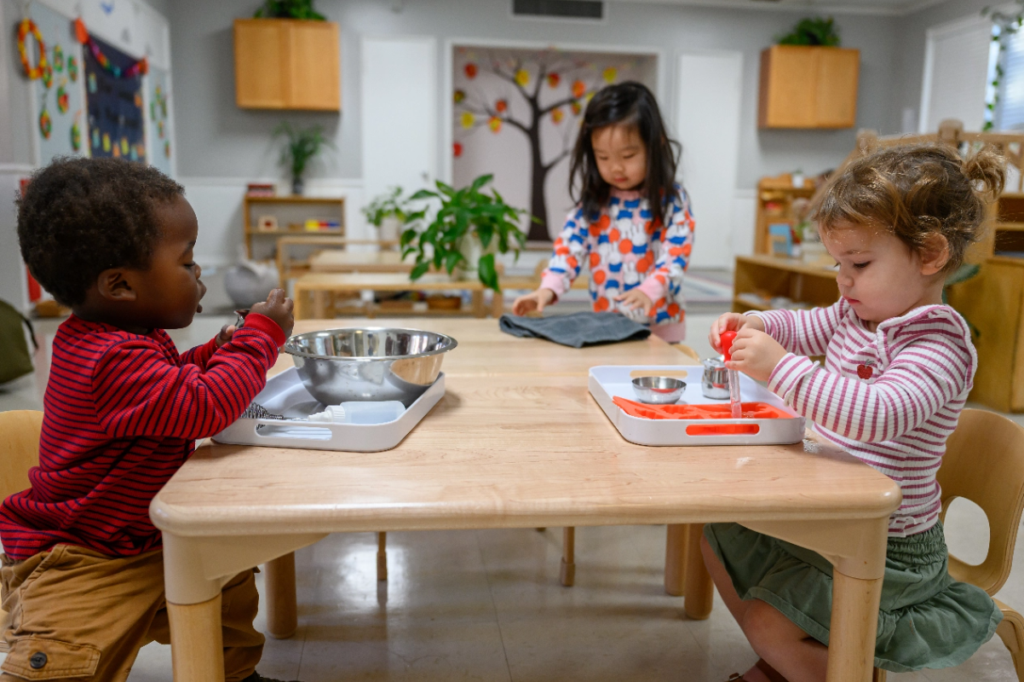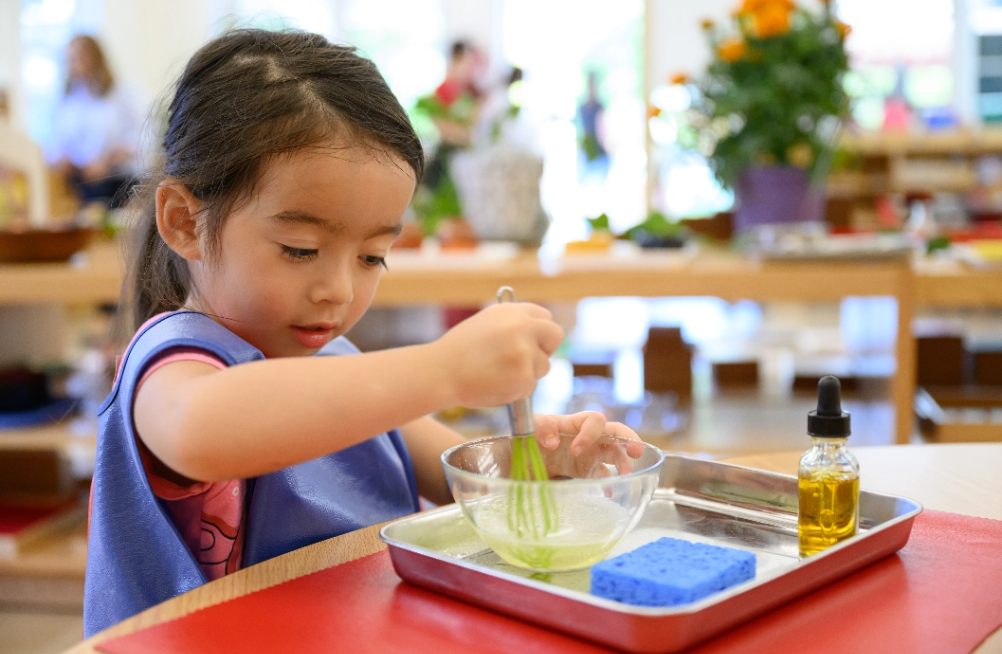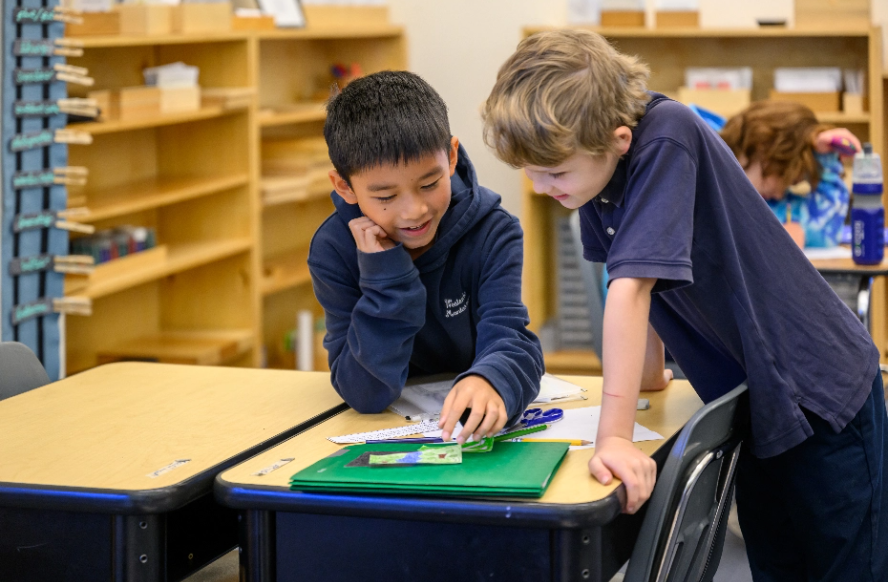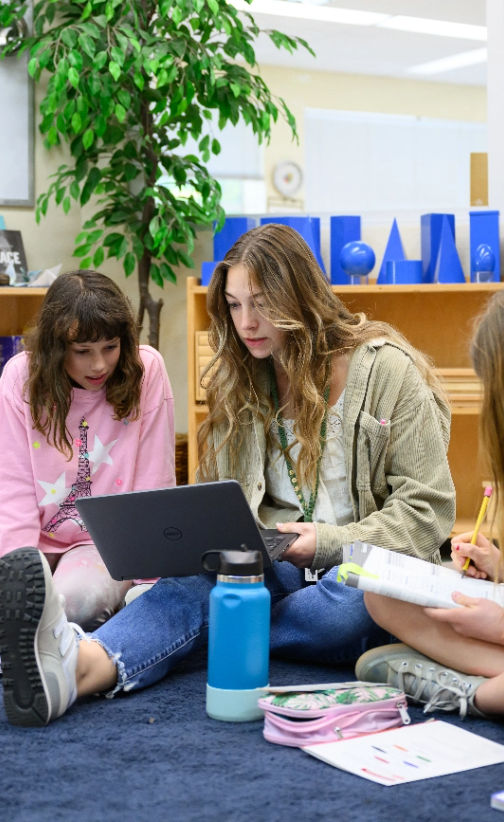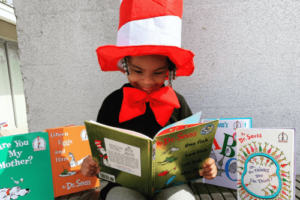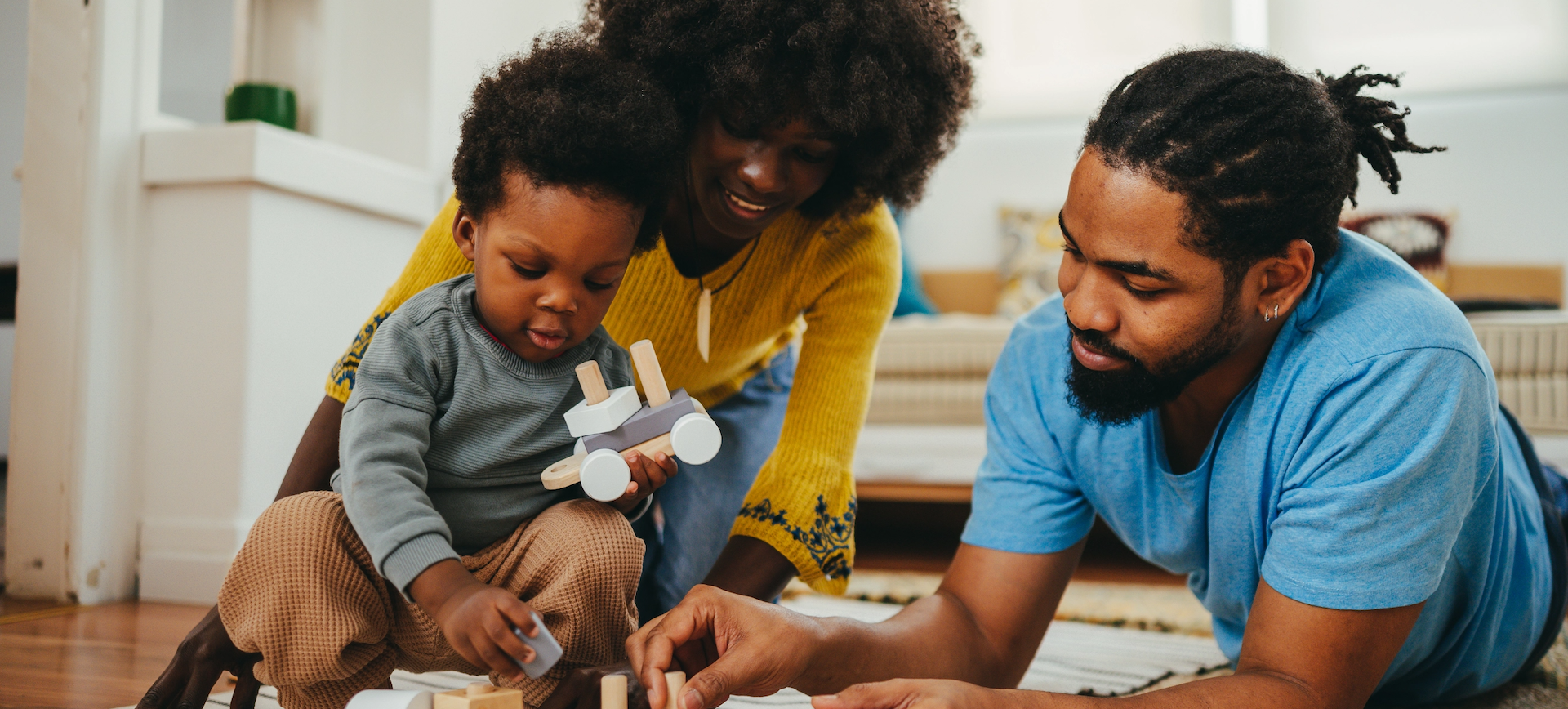
Montessori For Families
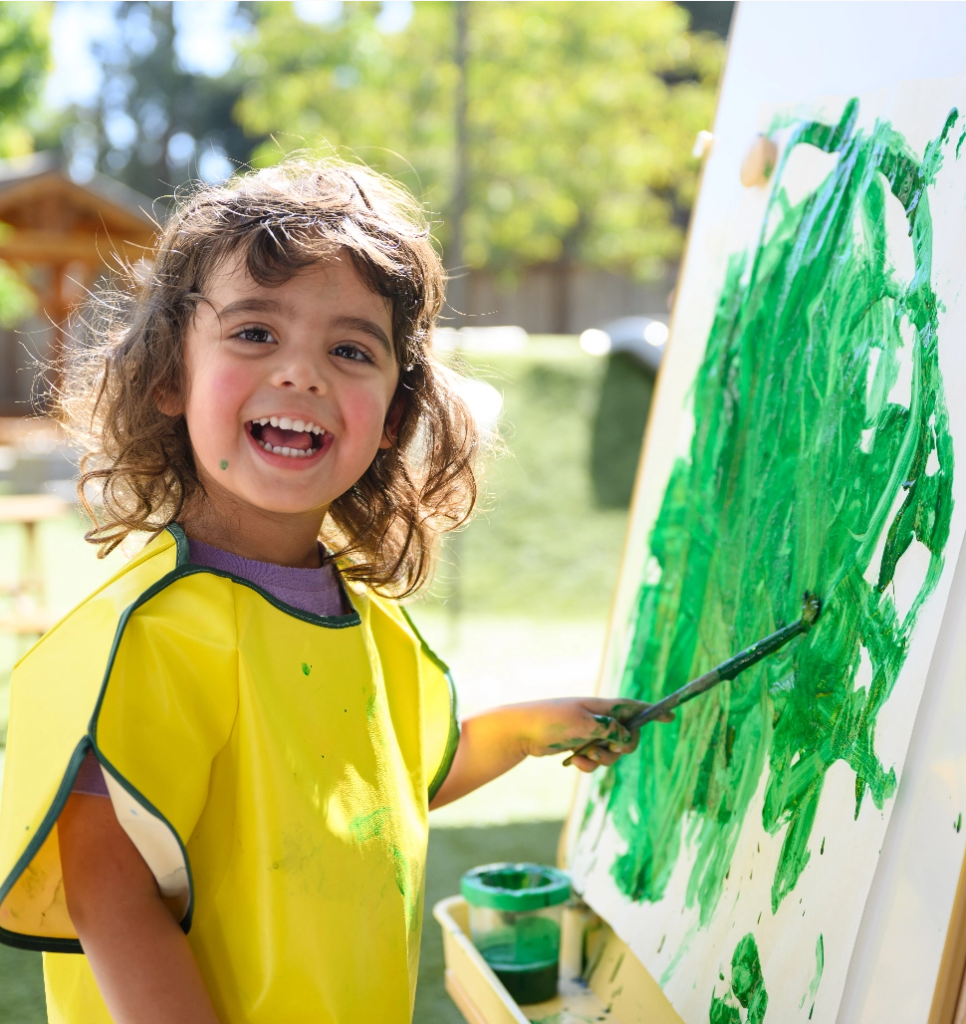
Benefits of Montessori Education
- Montessori Education focuses on the whole child, fostering rigorous, self-motivated growth in all areas of development: cognitive, emotional, social, and physical.
- Children develop a strong sense of curiosity within a nourishing environment.
- Concentration, confidence and independence are nurtured from an early age.
- Students are part of a close, caring community.
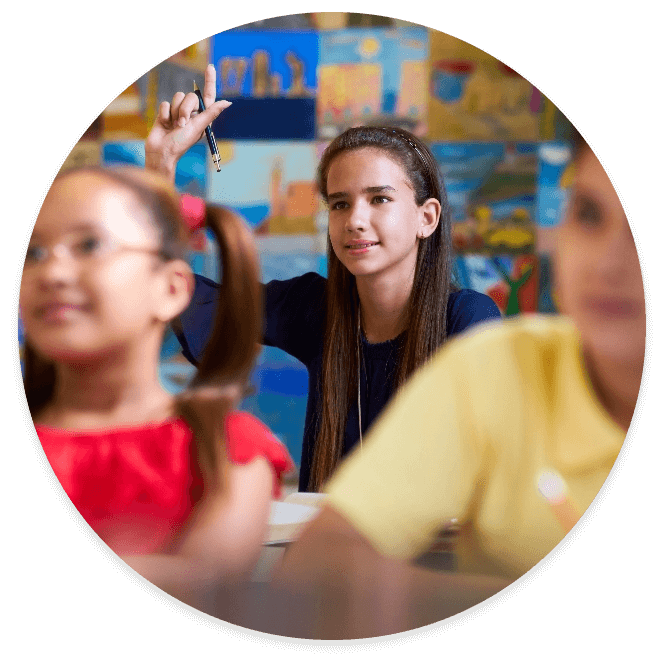
About Montessori
Montessori is a holistic, experiential, child-directed system of education, developed by revolutionary educator Dr. Maria Montessori over a century ago. This scientifically-validated approach is now practiced worldwide.
Inside the
Montessori Classroom
See how a typical classroom balances structure with exploration so every child has room to discover their talents.
Why an AMS School?
AMS member schools are dedicated to providing an authentic Montessori Education and meeting quality standards
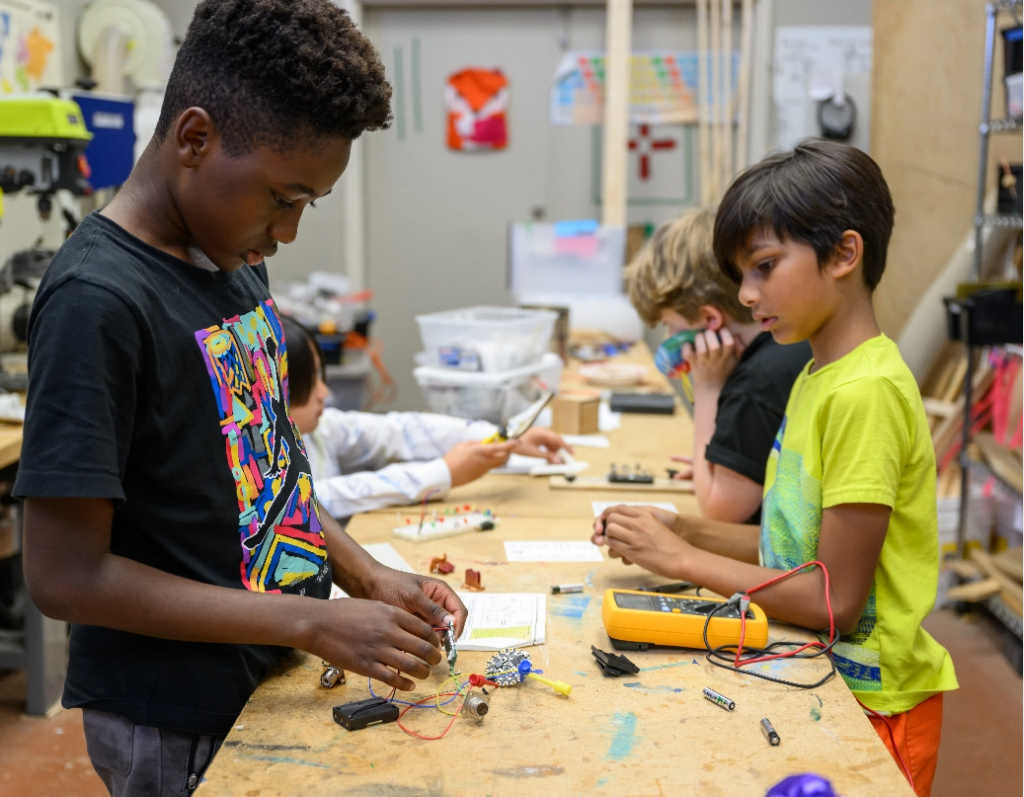
Montessori FAQs
Do Montessori students take standardized tests?
Public Montessori schools are mandated to administer the same standardized tests as other public schools.
Some private Montessori schools also administer standardized exams, particularly if they will be required by schools into which their students may transition. Other schools choose not to administer these tests.
How and when did the Montessori method start?
In 1906, Dr. Maria Montessori, an Italian educator, physician, and scientist, who had just judged an international competition on the subjects of scientific pedagogy and experimental psychology, was invited to create a childcare center in San Lorenzo, a poor, inner-city district of Rome. There, she would be working with some of the area’s most disadvantaged, and previously unschooled, children.
She opened the doors on January 6, 1907, calling the center the Casa dei Bambini—Italian for “Children’s House.” Dr. Montessori was determined to make the Casa a quality educational environment for these youngsters, whom many had thought were unable to learn—and she did.
To learn more about the history of Montessori, visit this page. To learn more about Dr. Maraia Montessori, go here.
How do I know if a school is providing an authentic or high-fidelity Montessori education?
Since the word ‘Montessori’ is public domain and anyone can use it, it’s important to look out for the 5 core components of Montessori education:
- Trained Montessori teachers
- The multi-age classroom
- Utilizing Montessori materials
- Child-directed work
- Uninterrupted work periods
For more details on these 5 Core Components, visit this page. Please note that public Montessori schools may not all be able to execute across these core components.
For additional information on quality Montessori schools, see the Pathway of Continuous School Improvement, and read about AMS Accredited Schools. For more information on Choosing an AMS Member School, go here.
How does Montessori assess student progress?
Montessori students typically do not receive letter or number grades for their work. Grades, like other external rewards, have little lasting effect on a child’s efforts or achievements. The Montessori approach nurtures the motivation that comes from within, kindling the child’s natural desire to learn.
A self-motivated learner also learns to be self-sufficient, without needing reinforcement from outside. In the classroom, of course, the teacher is always available to provide students with guidance and support.
Although most Montessori teachers don’t assign grades, they closely and continuously observe and assess each student’s progress and readiness to advance to new lessons. Most schools hold family conferences a few times a year so parents may see samples of their child’s work and hear the teacher’s assessment—and perhaps even their child’s self-assessment.
How is Montessori education “scientifically-validated”?
A growing body of evidence demonstrates the success of Montessori’s holistic approach in achieving strong results on both academic and non-academic student outcomes. Find the specific research citations here.
How many students are typically in a Montessori class?
Unlike some private schools, which strive for very small classes, Montessori values the lessons of community that can happen when the size of the class is somewhat larger. A larger, multi-age class can encourage students to rely on themselves and their peers as resources, rather than going directly to a teacher for support first.
Montessori classes at the Early Childhood level and above might include an average class size of 20 – 30 students whose ages span 3 years. All members of the community benefit from this configuration. Older students are proud to act as role models; younger ones feel supported and gain confidence about the challenges ahead. And all children develop their independence as they problem solve with their peers within their classroom community.
Classes for infants and toddlers are smaller, with typically 10 – 15 children. Often the teacher-to-child ratio for this youngest age group is set by state licensing standards.
Is Montessori appropriate for children with disabilities and neurodivergences?
The Montessori Method of education provides a nurturing, supportive environment for children of all abilities and learning styles. This includes children with disabilities and neurodivergences, including physical disabilities; learning differences in reading, writing, spelling and/or math; ADHD; and autism spectrum disorders.
Children learn in multi-age classes, with the same teacher, for 3 years. This sustained connection creates a stable, predictable environment for adults and children alike. Students are able to attend to their learning, rather than having to adjust to new people and new routines every year. For more information on Montessori and children with disabilities and neurodivergences, please visit this page.
Is there such thing as a public Montessori school?
There is! More school districts are including Montessori programs as a parent choice. Currently, more than 500 public schools nationwide offer Montessori programs. Public Montessori education is a popular option for preschool through high school students attending all types of publicly funded schools—neighborhood, magnet, and charter.
Because they are publicly funded, public Montessori schools are open to all children. They do not generally require incoming students to have prior Montessori experience; however, some restrict the admission of children without Montessori experience to lower Elementary levels only.
Students are often admitted to public Montessori programs by lottery because there tend to be more applicants than openings. While public Montessori programs are tuition-free, tuition may be charged for 3- to 4-year-olds in public school pre-kindergarten classes that are not fully covered by state funding. If required, pre-kindergarten tuition is usually paid on a sliding scale, depending upon the family’s eligibility for the National School Lunch Program (free, reduced, or full-pay).
What are common misconceptions about Montessori education?
There are a handful of misconceptions and myths about the Montessori method, and they are often contradictory. To learn more about these common misconceptions, read this post on our Montessori Life Blog!
What are the core principles of Montessori education?
There are five core components of Montessori education: Trained Montessori teachers, the multi-age classroom, using Montessori matierials, child-directed work, and uninterrupted work periods. Click here to learn more about these Five Core Components of Montessori.
What does a typical Montessori classroom layout look like?
As soon as you enter a classroom, you know that something different is afoot. Montessori classrooms are immediately recognizable. You will see children working independently and in groups, often with specially designed learning materials; deeply engaged in their work; and respectful of themselves and their surroundings.
To see inside each age group’s classroom, visit this page.
What does transition from Montessori to traditional school look like?
A growing body of research comparing Montessori students to those in traditional schools suggests that in academic subjects, Montessori students perform as well as or better—academically and socially—than their non-Montessori peers. These benefits grow as children have more experience in a Montessori environment.
Most Montessori schools report that their students are typically accepted into the high schools and colleges of their choice. And many successful graduates cite their years at Montessori when reflecting on the important influences in their life.
What is a Montessori school?
Over a century ago, Italian physician Dr. Maria Montessori developed a child-focused approach for educating children, and it has been transforming schools around the globe ever since.
Montessori classrooms are immediately recognizable. You will see children working independently and in groups, often with specially designed learning materials; deeply engaged in their work; and respectful of themselves and their surroundings. To see inside Montessori classrooms, visit this page.
The Montessori Method fosters rigorous, self-motivated growth for children and adolescents in all areas of their development—cognitive, emotional, social, and physical.
What kind of preparation and credentials should Montessori teachers have?
One must hold a bachelor’s degree or higher from a regionally accredited U.S. College/ university, or its equivalent, as well as a Montessori credential. AMS has several affiliated techer education programs available to earn Montessori credentials across all age groups.
An associate credential for Infant & Toddler and Early Childhood levels is awarded to those who have completed high school but do not hold a bachelor’s degree.
For more information on how to become a Montessori Educator, please visit this page. To learn more about AMS-affiliated teacher education programs (TEPs), visit this page.
On-Demand For Parents
Digital Citizenship in Montessori Education
Digital Citizenship in Montessori Education is designed to help Montessori educators integrate Digital Citizenship principles into their teaching practices. Participants will define Digital Citizenship and its essential components within the context of Montessori education. The course covers strategies for promoting digital equity, inclusion, and addressing inherent biases in digital systems. Educators will receive a toolbox of resources and strategies to draw upon for selecting DC lessons suitable to their classroom environments and class community.
Demystifying Multilingualism in Early Childhood
What does multilingualism look like in early childhood, and why is it beneficial in the short- and long-term? How can educators who have been trained on monolingual language development apply Montessori theory and prepare children to learn multiple languages simultaneously and sequentially? With content created by multilingualism experts, Gabrielle Kotkov and Michela Castellarin, this official AMS on-demand, self-guided class addresses these questions and more! It focuses on early childhood and builds on Montessori training to gain insight and strategies for supporting language development among multilingual children.
Notable Montessori Alumni
Living proof that guiding your child towards self-learning can lead to unprecedented success.
From the Montessori Life Blog
Montessori Life Blog is the go-to resource for anyone interested in staying up to date on the latest news and trending topics in the world of Montessori.
Connect with us.
@americanmontessori
